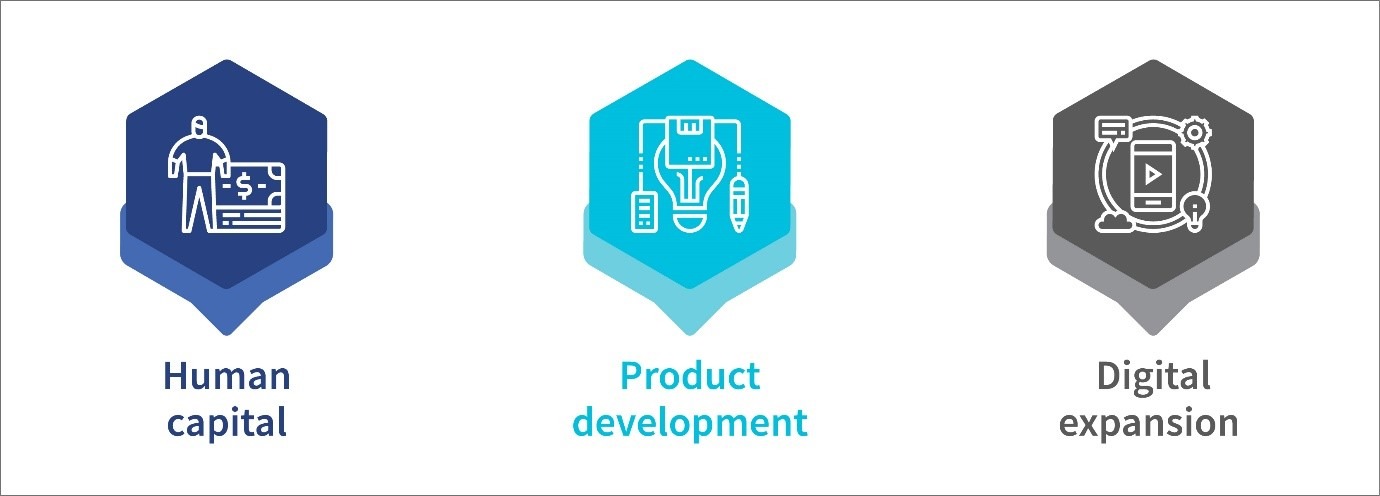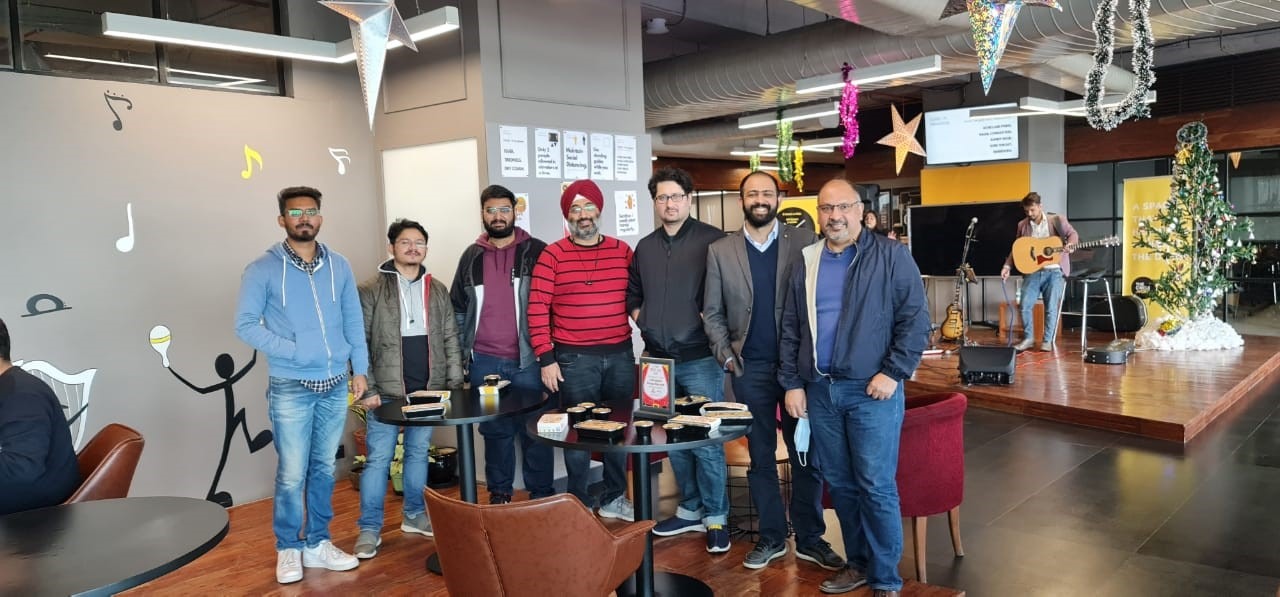Bridge2Capital: Breaking the patterns of the erstwhile normal
 by Manali Jain and Parul Tandon
by Manali Jain and Parul Tandon Aug 16, 2021
Aug 16, 2021 5 min
5 min
This blog highlights the journey of Xtracap, a fintech start-up that provides extended credit to low- and middle-income merchants in India towards their daily working capital needs through its flagship technology platform—Bridge2Capital.
This blog looks at Bridge2Capital, a startup that was part of the Financial Inclusion Lab accelerator program, which receives support from some of the largest philanthropic organizations across the world—Bill & Melinda Gates Foundation, J.P. Morgan, Michael & Susan Dell Foundation, MetLife Foundation, and Omidyar Network.
The journey so far
Back in 2017, Bridge2Capital began with a simple idea—to provide working capital support to retail merchants in India, including local mom-and-pop stores called kiranas in a timely and easy manner. Our earlier blog narrated Bridge2Capital’s journey as it adopted an uncommon, yet robust, strategy of Goods and Service Tax (GST) based invoice discounting. Instead of paying to its borrower, Bridge2Capital directly paid to the supplier to ensure the end-use of funds. Under this process, retailers got timely access to working capital to run and grow their businesses and serve more customers. As retailers earn over a period, they pay back the capital in evenly distributed installments over a few weeks or months.
Bridge2Capital has on-boarded more than 1,200 shopkeepers on its digital platform till now. The startup has grown its network from about 300 retailers in 3-4 cities when it joined us in the first and second cohort to explore new geographies and increase its footprint. Bridge2Capital has now started to increase its digital footprint and enhance the overall business of shopkeepers by adding various new products.
How did COVID-19 change Bridge2capital’s strategy?
The government imposed nationwide lockdowns in March, 2020 to flatten the curve of infection and prepare the country to handle the crisis of COVID-19. The pandemic slowed down the economy and brought financial hardships for kirana retailers. Curfews and the strict lockdown had a severe impact on the livelihood of retailers who borrowed from Bridge2Capital.
To provide relief to these retailers, RBI announced a moratorium on loan repayments. Many borrowers of Bridge2Capital found it difficult to pay back their installments and opted for the moratorium. Yet unlike many other startups that succumbed to the pressures of the pandemic, Bridge2Capital found an opportunity in the adverse time to re-think, re-plan, and re-emerge with a holistic strategy. It focused on three key pillars to redefine and adapt its business to a new normal.

- Human capital: Despite tough times, the management did not lay off a single team member. Instead, it found ways to keep them employed gainfully. With the focus on customer care, Bridge2Capital redefined the KRAs of its staff. It cross-skilled its staff to play multiple roles, based on ever-evolving needs during the pandemic and encouraged and supported them to further the company’s vision.

- Product development: With changing needs of their customers in these times, Bridge2Capital realized the opportunity to introduce relevant products. As the pandemic struck, the demand for savings and insurance products shot up due to the prevailing uncertainty, and the resultant risk to health and future earnings.
Using a human-centered design approach, Bridge2Capital has been building a full-stack financial solution for its shopkeepers that supports their varied financial needs. To arrive at the right solution, the startup interviewed existing and potential customers and brainstormed with the frontline sales team that deals with retailers, UI/UX specialists, and tech teams.
Based on these discussions, Bridge2Capital worked on solutions, such as gold-based savings, digital insurance products, and pension services for its existing network of shopkeepers to build their financial well-being. The startup also introduced a digital ledger to help its shopkeeper borrowers to manage their finances easily. This feature helps the borrowers engage more with customers and also generates additional data sets for the company.
3. Digital expansion: As COVID-19 restricted the scope to reach customers physically, Bridge2Capital decided to go fully digital. With a focus on digital marketing, the startup hired skilled resources—even in these difficult times—to set up a plan to grow the business.
Before the pandemic, the process of financing invoices was fully digital, but on-boarding and customer support were highly human-centric and manual processes. Bridge2Capital changed some of those manual processes like replacing physical- with remote- (video) KYC, moving from physical support to onboarding customers with telephone-assisted processes, among others.
To spruce up its digital communication, the startup focused on targeted social media campaigns for brand building, customer acquisition, and cross-selling. These efforts paid off and helped Bridge2Capital expand rapidly while reducing the costs of customer acquisition.
The FI Lab supported Bridge2Capital in building a holistic strategy
- As the pandemic was making everyone learn new skills and new ways to work, the Lab also used remote assistance tools to help Bridge2Capital to create a structured plan to fulfill its objectives. The Lab ran a customized strategic business planning (SBP) workshop for founders and senior team members. This helped condense their ideas by understanding the competition, building on their objectives, and thus prioritizing the company’s goals and resources for the next three years. The SBP also helped the management analyze strengths and weaknesses and build agility in business operations.
- Considering the constraints imposed by the pandemic, the Lab worked with Bridge2Capital to create a digital marketing roadmap to engage various stakeholders. This included assistance to create brand awareness, loyalty programs, and digital on-boarding for customers. In particular, the Lab helped Bridge2Capital to focus its marketing efforts on the targeted low-middle-income (LMI) sub-segment of kirana store owners. With its nuanced approach, the roadmap created an impactful market strategy to increase conversions, build trust, and enhance Bridge2Capital’s brand value for this sub-segment and provide a strong mechanism to resolve grievances to refine the overall experience of its customers.
Way forward: The future is digital
COVID-19 has triggered a complete digital transformation. Accordingly, Bridge2Capital will focus on going 100% digital in the next six months. Goal-based campaigns, referral bonuses, and influencer marketing will continue to drive conversion and engagement. For effective outreach, the startup will focus on understanding the needs, habits, preferences, and behavioral triggers of the customer segment. The insights will help deliver relevant products and create effective communication and strengthen customer relationships.
Bridge2Capital has also been in talks with leading organizations for strategic partnerships. It also intends to continually explore new geographies as it goes 100% digital, to create a nationwide presence. While Bridge2Capital improves its business and marketing strategy, it will continue to focus on strengthening the financial profile of small shopkeepers and their empowerment through unique financial solutions that suit their needs.
This blog post is part of a series that covers promising FinTechs that have been making a difference to underserved communities. These startups receive support from the Financial Inclusion Lab accelerator program. The Lab is a part of CIIE.CO’s Bharat Inclusion Initiative and is co-powered by MSC. #TechForAll, #BuildingForBharat
Written by


Leave comments